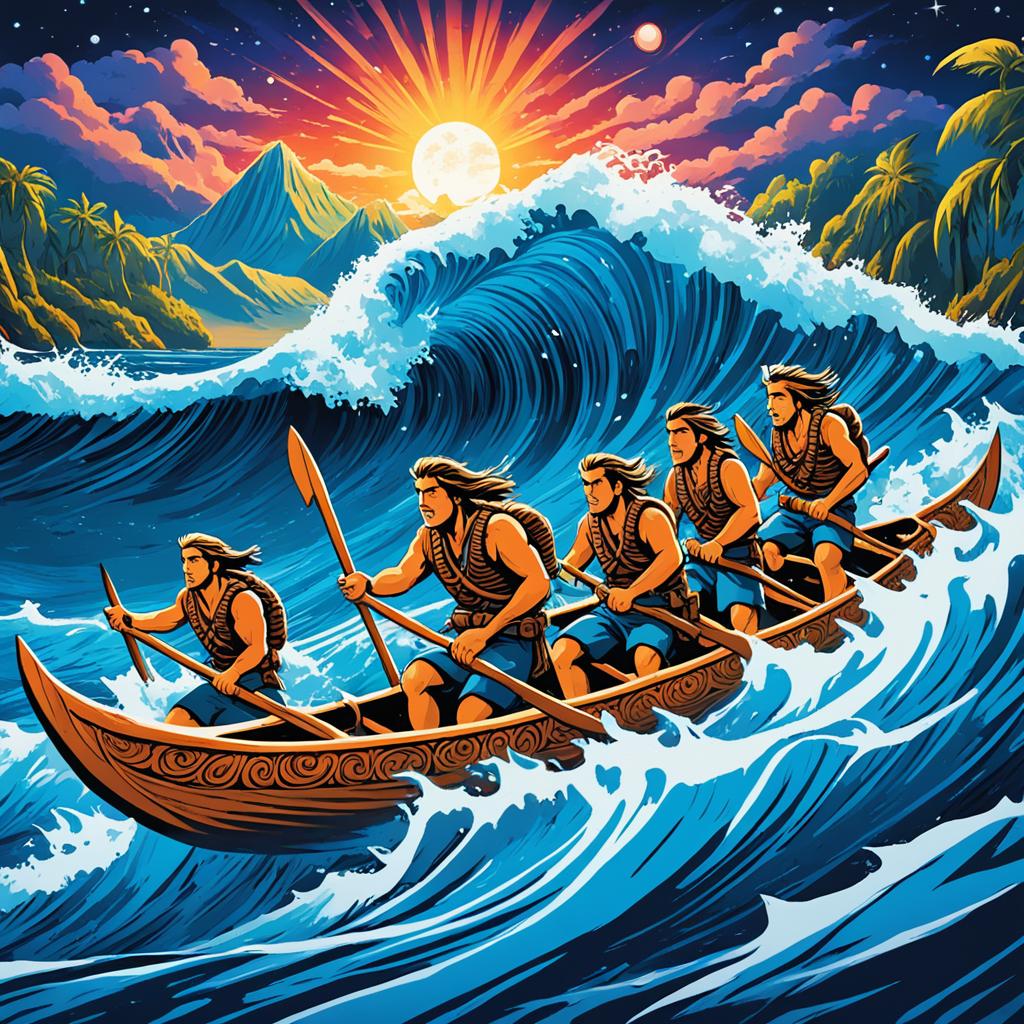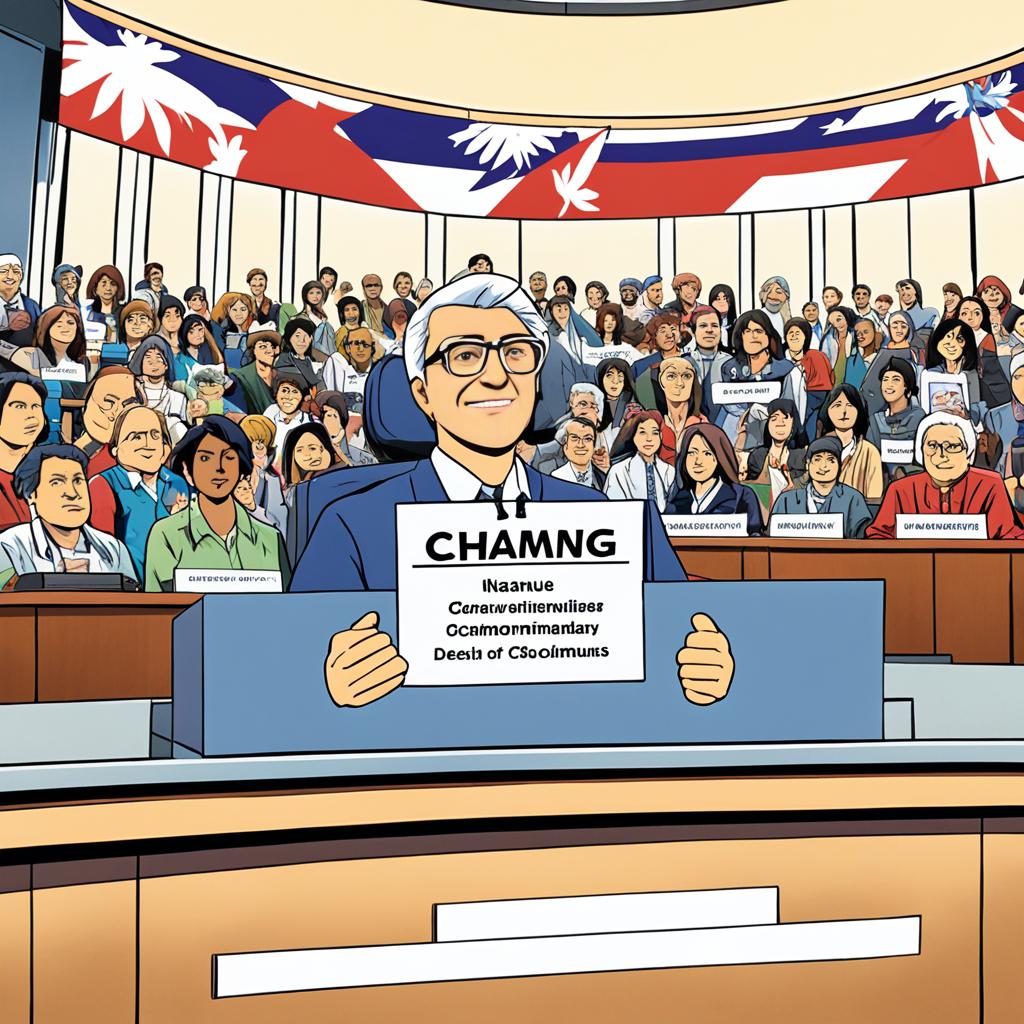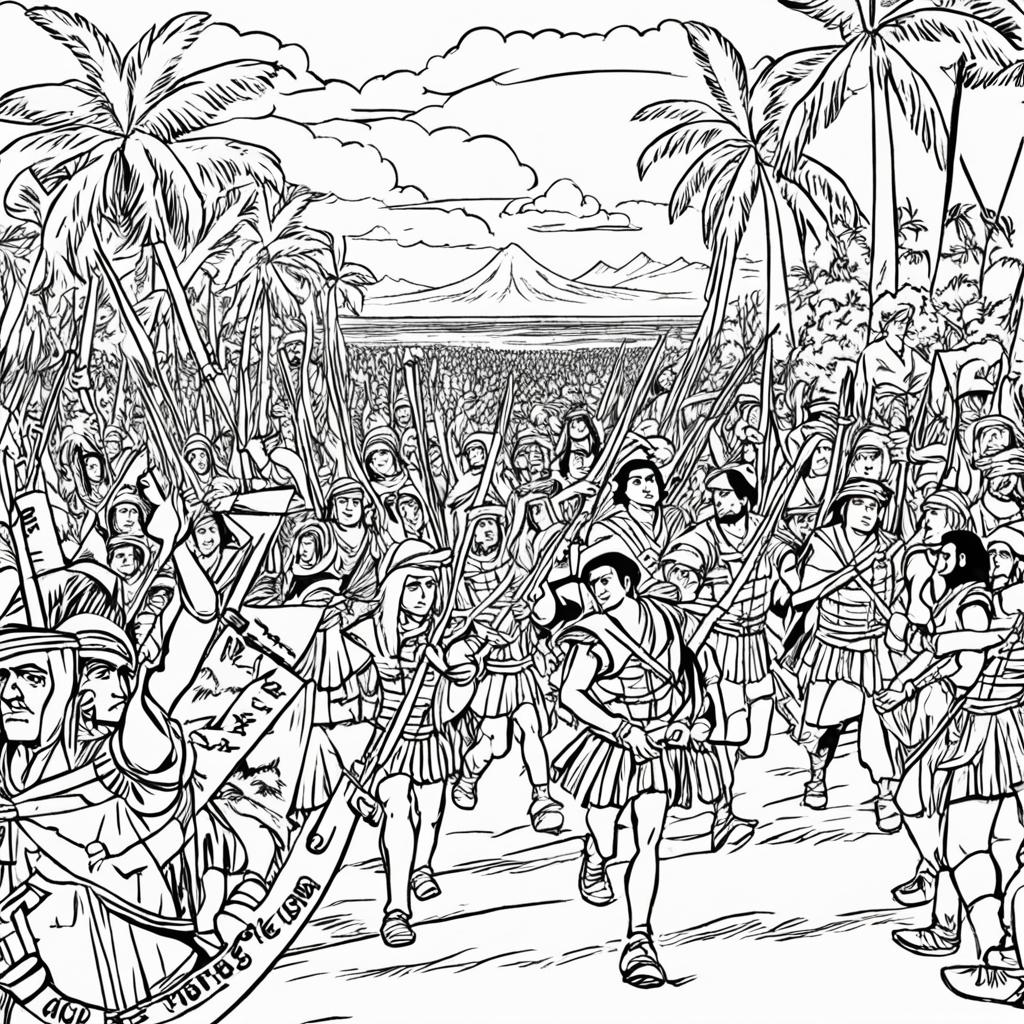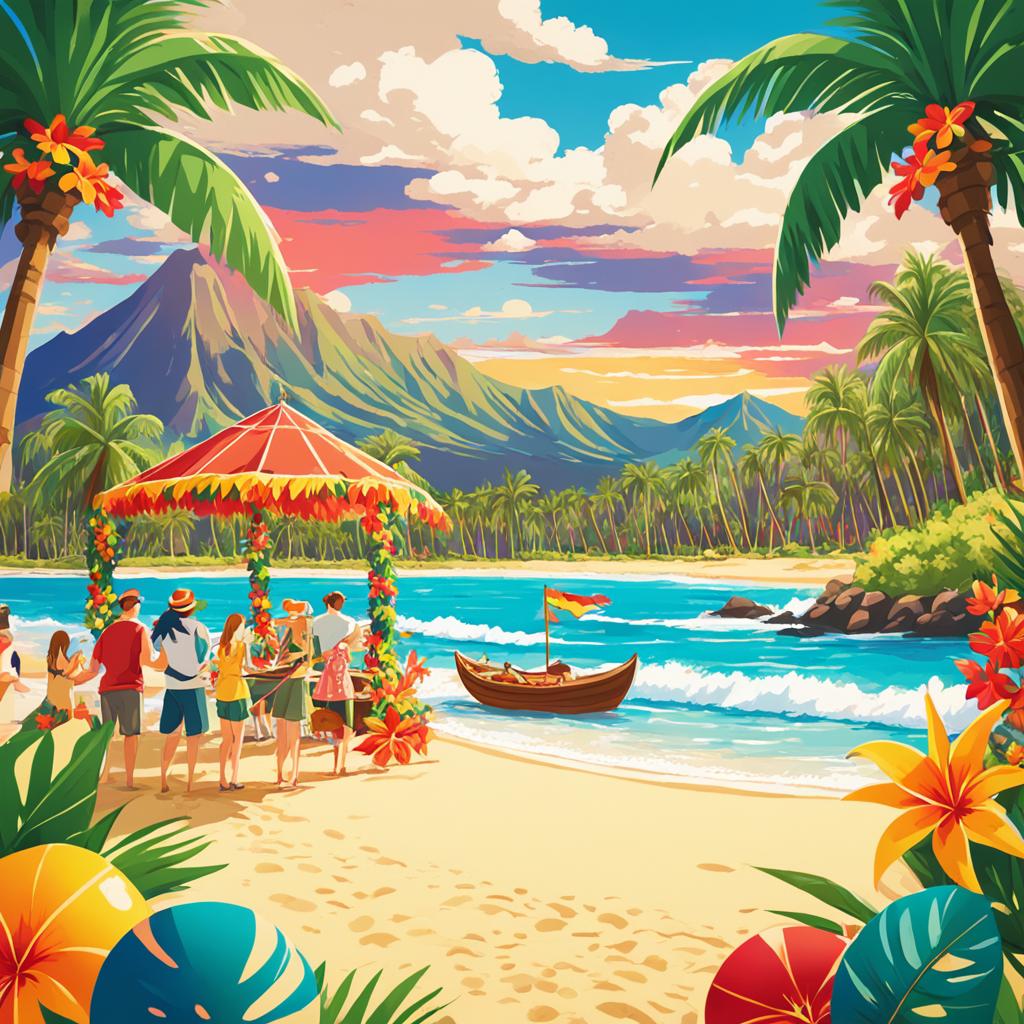When it comes to official state holidays, different states have different traditions. But what about Hawaii? Is Columbus Day celebrated there like in many other parts of the United States? Well, the answer might surprise you.
History of Discoverers’ Day in Hawaii

Discoverers’ Day in Hawaii has a unique history. It was established in 1971 as a way to honor all discoverers, including Pacific and Polynesian navigators. However, this holiday also has a controversial past as it commemorates the arrival of Captain Cook in Hawaii in 1778, which had devastating effects on the native population. The arrival of Cook and subsequent events led to the colonization of Hawaii, resulting in the decimation of the native population and the introduction of diseases. Given this history, Hawaii decided to distance itself from a holiday celebrating Columbus and changed the name to Indigenous Peoples’ Day.
Comparison of Discoverers
| Discoverers | Discoverers’ Day |
|---|---|
| Captain Cook | Celebrated |
| Polynesian Navigators | Celebrated |
This table illustrates the different discoverers honored on Discoverers’ Day in Hawaii. Both Captain Cook and Polynesian navigators are included in the celebration, although the holiday now emphasizes a broader focus on indigenous cultures and peoples.
Legislation and Name Change

The name change from Discoverers’ Day to Indigenous Peoples’ Day in Hawaii was not a recent development. The bill to change the name has come and gone in the Hawaii legislature over the years, but it finally passed this year. The legislation recognizes the importance of honoring the descendants of indigenous people in Hawaii, including Native Hawaiians, and educating the population about their culture, history, and struggles. This change reflects a larger movement across the United States to replace Columbus Day with Indigenous Peoples’ Day.
In Hawaii, the legislation to change the name from Discoverers’ Day to Indigenous Peoples’ Day signifies a significant step towards acknowledging the history and heritage of the native population. By recognizing and celebrating the contributions and struggles of indigenous people in Hawaii, this legislation serves as a testament to the state’s commitment to promoting inclusivity and cultural diversity.
With the passing of this legislation, Hawaii joins numerous other states in the United States that have already embraced the change from Columbus Day to Indigenous Peoples’ Day. This growing movement reflects a broader understanding of the impact of colonization on native populations and the need for a more inclusive holiday that honors the history and contributions of indigenous cultures.
As the name change to Indigenous Peoples’ Day becomes official in Hawaii, it serves as a reminder that legislation can be a powerful tool for recognizing and rectifying historical injustices. By changing the name of the holiday, Hawaii is taking a significant step towards fostering a more inclusive and equitable society.
Controversy and Criticism

The celebration of Columbus Day has been surrounded by controversy and faced significant criticism. Many individuals and communities have questioned the appropriateness of celebrating Columbus due to his mistreatment of native populations and the lasting consequences of European colonization. The controversy surrounding Columbus Day is particularly significant in Hawaii, considering the historical context of the islands’ colonization. The decision to replace Columbus Day with Indigenous Peoples’ Day in Hawaii reflects a desire to acknowledge and honor the original inhabitants of the land and promote cultural revival.
An Overview of the Controversy and Criticism
- Critics argue that Christopher Columbus should not be celebrated because his actions resulted in the mistreatment and displacement of indigenous people.
- The legacy of European colonization, including the introduction of diseases and the decimation of native populations, adds further weight to the criticism against Columbus Day.
- Hawaii, with its unique history of colonization, has been at the forefront of questioning the celebration of Columbus and seeking alternative ways to honor the islands’ heritage.
The Shift to Indigenous Peoples’ Day
The movement to replace Columbus Day with Indigenous Peoples’ Day has gained traction across the United States. By embracing Indigenous Peoples’ Day, Hawaii aims to highlight the contributions, resilience, and cultural significance of Native Hawaiians and all indigenous cultures. This shift represents a vital step in acknowledging the historical impact of colonization and fostering cultural awareness and inclusivity.
| Criticism of Columbus Day | Indigenous Peoples’ Day |
|---|---|
| – Celebrates a figure associated with mistreatment of indigenous populations | – Honors the original inhabitants of the land |
| – Reflects a legacy of European colonization | – Promotes cultural revival |
| – May perpetuate historical inaccuracies and stereotypes | – Recognizes and preserves the history and heritage of indigenous cultures |
Observance and Significance of Indigenous Peoples’ Day in Hawaii
Indigenous Peoples’ Day holds great significance in Hawaii. It serves as a day to educate the people of Hawaii about their obligation to protect the rights of the original inhabitants of the land and to celebrate the revival of cultural practices such as hula and olelo Hawaii.
This holiday is an opportunity to recognize and honor the contributions, resilience, and sovereignty of Native Hawaiians and other indigenous cultures. The observance of Indigenous Peoples’ Day in Hawaii reflects a commitment to acknowledging and preserving the history and heritage of the native population.
State Holidays in Hawaii
Hawaii has seen changes in its state holidays over the years, reflecting the evolving understanding and recognition of the historical impact of colonization on the native population. One notable change is the transition from Discoverers’ Day to Indigenous Peoples’ Day.
Discoverers’ Day was an official state holiday in Hawaii until 1988 when it was removed from the list of recognized holidays. This removal made way for the addition of Martin Luther King Jr. Day, which became a state holiday in its place.
However, the most recent change came in this year, when Discoverers’ Day was officially renamed Indigenous Peoples’ Day. This change acknowledges the importance of honoring and recognizing the contributions, history, and struggles of Native Hawaiians and other indigenous cultures.
The decision to change the holiday reflects a broader movement across the United States to replace Columbus Day with Indigenous Peoples’ Day. By renaming the holiday, Hawaii aims to distance itself from a celebration that historically represented the colonization of Native Americans.
With the transition from Discoverers’ Day to Indigenous Peoples’ Day, Hawaii continues to demonstrate its commitment to acknowledging and preserving the history and heritage of the native population. This new state holiday serves as a meaningful observance and celebration of the indigenous cultures that have shaped the Hawaiian islands.
Comparison with Other States
Hawaii is not the only state that has decided to replace or rename Columbus Day. In fact, there are currently 17 states that do not observe Columbus Day as an official public holiday. Instead, these states have chosen to designate the second Monday in October as Indigenous Peoples’ Day or a similar holiday that honors Native Americans. This movement to replace Columbus Day with a day that recognizes indigenous peoples has gained momentum nationwide.
Many states have realized the importance of acknowledging and celebrating the diverse cultures, histories, and contributions of indigenous peoples. By replacing Columbus Day with Indigenous Peoples’ Day, these states are taking a step towards rectifying the historical inaccuracies and negative impacts associated with the colonization of Native American lands.
| States that Replace Columbus Day | Holiday |
|---|---|
| Alaska | Indigenous Peoples’ Day |
| Minnesota | Indigenous Peoples’ Day |
| Vermont | Indigenous Peoples’ Day |
| Oregon | Indigenous Peoples’ Day |
| Maine | Indigenous Peoples’ Day |
| New Mexico | Indigenous Peoples’ Day |
These are just a few examples of the states that have chosen to embrace the celebration of Indigenous Peoples’ Day instead of Columbus Day. This shift reflects a growing societal awareness of the need to honor and respect the indigenous cultures that have shaped our nation’s history.
As more states join this movement, it becomes clear that the legacy of Christopher Columbus and the impact of colonization are being reassessed and reevaluated. Indigenous Peoples’ Day provides an opportunity for education, reflection, and a deeper understanding of the rich and diverse heritage of Native American communities throughout the United States.
Future Considerations
Although the change from Columbus Day to Indigenous Peoples’ Day has been made in Hawaii, there are important future considerations that need to be addressed. Negotiations with employers, such as the Hawaii State Teachers Association, will be necessary to ensure that Indigenous Peoples’ Day is recognized as a holiday for public employees.
In addition to negotiations with employers, there are financial costs associated with adding another state holiday. Estimates suggest that the implementation of Indigenous Peoples’ Day could cost taxpayers approximately $17 million per year in lost productivity. This highlights the need for careful planning and consideration of the economic impact when implementing and maintaining changes to state holidays.
These future considerations underscore the complexities involved in making and sustaining changes to the holiday calendar. It requires thoughtful negotiations, financial analysis, and collaboration among various stakeholders to ensure a smooth transition and successful implementation of Indigenous Peoples’ Day as a recognized holiday for public employees in Hawaii.
FAQ
Q: Do they celebrate Columbus Day in Hawaii?
A: No, Hawaii does not celebrate Columbus Day. Instead, the state observes Indigenous Peoples’ Day, which is a new official state holiday as of this year.
Q: What is the history of Discoverers’ Day in Hawaii?
A: Discoverers’ Day was established in 1971 to honor all discoverers, including Pacific and Polynesian navigators. However, it also commemorates Captain Cook’s arrival in Hawaii, which had devastating effects on the native population.
Q: How did the legislation and name change come about?
A: The bill to change the name from Discoverers’ Day to Indigenous Peoples’ Day has been in the works for years, but it finally passed this year. The legislation recognizes the importance of honoring the descendants of indigenous people in Hawaii and educating the population about their culture, history, and struggles.
Q: Why has Columbus Day faced controversy and criticism?
A: Columbus Day has faced widespread controversy due to Christopher Columbus’ mistreatment of native populations and the legacy of European settlement. In Hawaii, the controversy is particularly significant due to the historical context of the colonization of the islands.
Q: What is the observance and significance of Indigenous Peoples’ Day in Hawaii?
A: Indigenous Peoples’ Day serves as a day to educate the people of Hawaii about their obligation to protect the rights of the original inhabitants of the land and to celebrate the revival of cultural practices such as hula and olelo Hawaii. It is an opportunity to recognize and honor the contributions, resilience, and sovereignty of Native Hawaiians and other indigenous cultures.
Q: How have state holidays changed in Hawaii?
A: Discoverers’ Day was an official state holiday until 1988 when it was removed from the roster. It was officially changed to Indigenous Peoples’ Day this year, reflecting the evolving understanding and recognition of the historical impact of colonization on the native population.
Q: How does Hawaii compare to other states in terms of Columbus Day?
A: Hawaii is not the only state to replace or rename Columbus Day. Currently, 17 states do not observe Columbus Day as an official public holiday, opting for Indigenous Peoples’ Day or a similar holiday honoring Native Americans instead.
Q: What are the future considerations regarding Indigenous Peoples’ Day in Hawaii?
A: Negotiations with employers, such as the Hawaii State Teachers Association, would be necessary to make Indigenous Peoples’ Day a recognized holiday for public employees. Additionally, there are financial costs associated with adding another state holiday.
